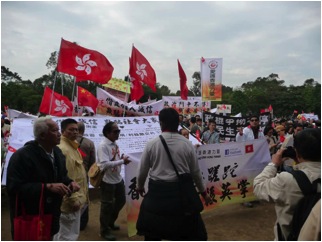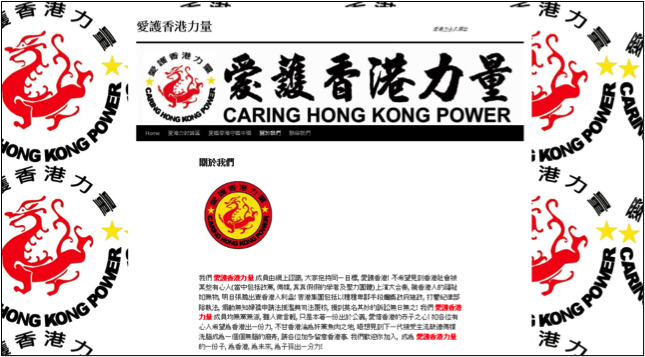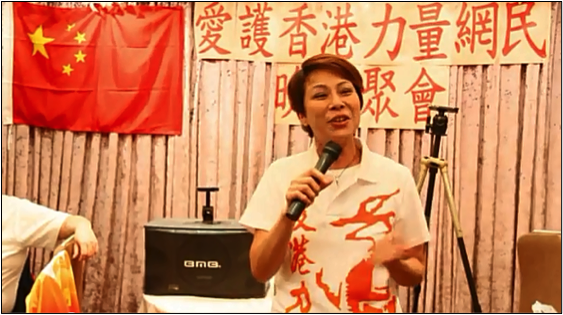(See also the series overview for this Hotspot on astroturfing.)
Xam Chan
The essence of astroturfing is to pretend to be “authentic” grass. But how can this be done? Here in Astroturfing 101 I will show you some basic elements of a successful astroturf. I am going to show you a case study of “Caring Hong Kong Power” (CHKP), which first began as an organization welcomed by the public but now has become publicly known as an astroturf with a pro-government stance[1]. I sincerely hope astroturf practitioners can learn from CHKP by way of example. Enjoy astroturfing!
CHKP was established in 2011. Its official website states that:
We, members of the Caring Hong Kong Power, are people who met others online and share the same objective: Caring Hong Kong! We do not want to see Hong Kong being manipulated by people (including political parties, media, authentic or inauthentic scholars, and pressure groups) who disregard the benefits of Hong Kong people and who brazenly betray the interests of Hong Kong people! … [translated to English by the author, 2]
The mission statement sounds like a call from some “conscientious” members of the general who are upset with the political and media ecology in Hong Kong today. These people formed the group just because they “met others online” and “share the same objective.” So, Rule #1: a successful astroturf has to create an impression that the group truly comes from the public and has to mask the sponsors behind.
CHKP started to gather media attention in 2011 when a domestic worker sought judicial review of the right of abode with the support of the Civic Party, a pro-democratic party in Hong Kong. CHKP opposed giving the right to foreign domestic workers. During that period of time, many Hong Kong citizens were worried about the influx of Chinese children whose parents are not Hong Kong residents. Because many people opposed giving foreign domestic workers the right of abode, CHKP become an admirable organization. Here is Rule #2: A successful astroturf has to secure public support by doing what the public agree.
Caring Hong Kong, like many grass-root organizations, utilizes various online channels. For example, it has its Facebook group with around 6,200 members[3]; a YouTube channel, with some 30 videos and around 120 subscribers[4]. Its official website, built on the WordPress platform as many amateur organizations do, is updated regularly. On its YouTube channel, CHKP uploaded a series of videos about its annual dinner, press conferences, demonstrations, etc. However, it is obvious that the materials the group used—the look of its official websites, the backdrop of the dinner party, and the setting of the press conference—were very simple, if not sketchy. It is difficult to imagine someone with financial, technical, and professional resources supports the group. In other words, no one takes the group seriously. Rule #3: A successful astroturf should avoid associating with any huge financial supporters.
Since astroturfs aim to mimic grass-root organizations, staffing becomes an important issue. Who should be the spokesperson of the astroturf? Many genuine grass-root organizations do not have PR experts to train their spokespeople to be professional public speakers. Therefore, spokespeople for astroturfs should not be too articulate. For CHKP, the spokesperson responsibility falls on one woman, Anna Chan, who claims to be “a housewife who knows nothing about politics.” And, as one can imagine, “a housewife who knows nothing about politics” sometimes speaks inappropriately in front of the public. Anna indeed was famous for her blunt and outrageous remarks in front of the camera and on online forums. Here is Rule #4: Finding an appropriate “actor” or “actress” to play the role of the key staff is paramount for a successful astroturf.
However, the astroturfing nature of CHKP surfaced when it was observed that it only protests against democratic parties and their allies but never pro-government parties. Some citizens also found attendees in the group’s events belong to DAB, a pro-government political party. Sometimes, CHKP hung their banners in DAB locations. Moreover, at many CHKP’s activities, participants were elderly, and many witnessed them being shuttled to the venue in large coaches. People started asking: Why is CHKP so close to DAB? Of course, CHKP denied its association with any political parties, but these linkages to DAB suggest the possibility that DAB or some forms of pro-government political force has created the group as an astroturf.
The power of the Internet became crucial in discovering the astroturf nature of the group. Many of these connections were in fact sorted out by netizens, who traced back political affiliations of CHKP’s key members, and by the general public who recorded the group’s events and posted these videos online. The Internet, due to its affordability, allows political parties to set up astroturfs at virtually no cost; nevertheless, using the exploratory nature of the Internet, the public is able to dig out the astroturf and discover its sponsor behind. So, listen astroturfing practitioners, the Internet is a double-edged sword for us: it is essential for disseminating information, promoting the groups, and mobilizing people, but it also be used to spot us out. The key decision for an astroturf creator is to decide to what extent and how the organization will use the Internet.
[1] The political spectrum in Hong Kong spans from pro-democratic to pro-government (also known as pro-Chinese government).
[2] http://chkp.org/wordpress/
[3] http://www.facebook.com/groups/chkp.open/
[4] http://www.youtube.com/user/caringhongkongpower




